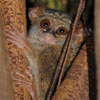Tropical Biology
CALLYN D. YORKE, Ph.D. , INSTRUCTOR
Tropical Biology is a course designed for students who have successfully completed a college-level biology class (e.g. Biol 101) and who are interested in expanding their knowledge of biology in tropical and subtropical regions of the world. The class is offered about every two years during either the summer or winter intersession and lasts two or three weeks within a particular country. Prior to departure class meetings are arranged to discuss details regarding geography, class itinerary, travel requirements, health and safety. Individuals interested in this class should contact the instructor, Dr. Callyn Yorke cyorke@avc.edu for information regarding cost, class dates and availability. Maximum class size is 15.
____________________________
Q & A ABOUT TROPICAL BIOLOGY
Q. How much does the class cost?
A. Each trip is unique; $3,500 is about average.
Q. What is generally not included in up-front costs?
A. Snacks & beverages; optional excursions.
Q. Are grants and scholarships available to students?
A. Yes. Many organizations want to give money to good students. AVC Student Development Center is a place to begin.
Q. What kind of physical condition should I be in for this class?
A. Good cardiovascular health; some mountain hiking is usually involved.
Q. Will I be exposed to deadly diseases or serious risk of injury?
A. Not if some simple rules are followed.
Q. Do I need a passport?
A. Definitely. Allow several weeks for this process.
Q. What kind of field project will I be expected to do?
A. Students choose their own project (see "Student Projects").
Q. How is the grade determined?
A. Class participation, including readings from our daily journals.
Q. Is there time for photography, drawing, cultural exchange, enjoyment of nature, etc.?
A. Yes!
Q Are students allowed to bring IPODS, DVD players, GAMEBOYS, or other electronic entertainment?
A. Laptops and cell phones are ok. The objective is to be fully present in a journey of discovery.
Q. What kind of lodging and food will be available?
A. Youth hostel type: simple, clean hotels and usually some tent camping. Local food (usually fresh fruit, veggies, meat and dairy products).





